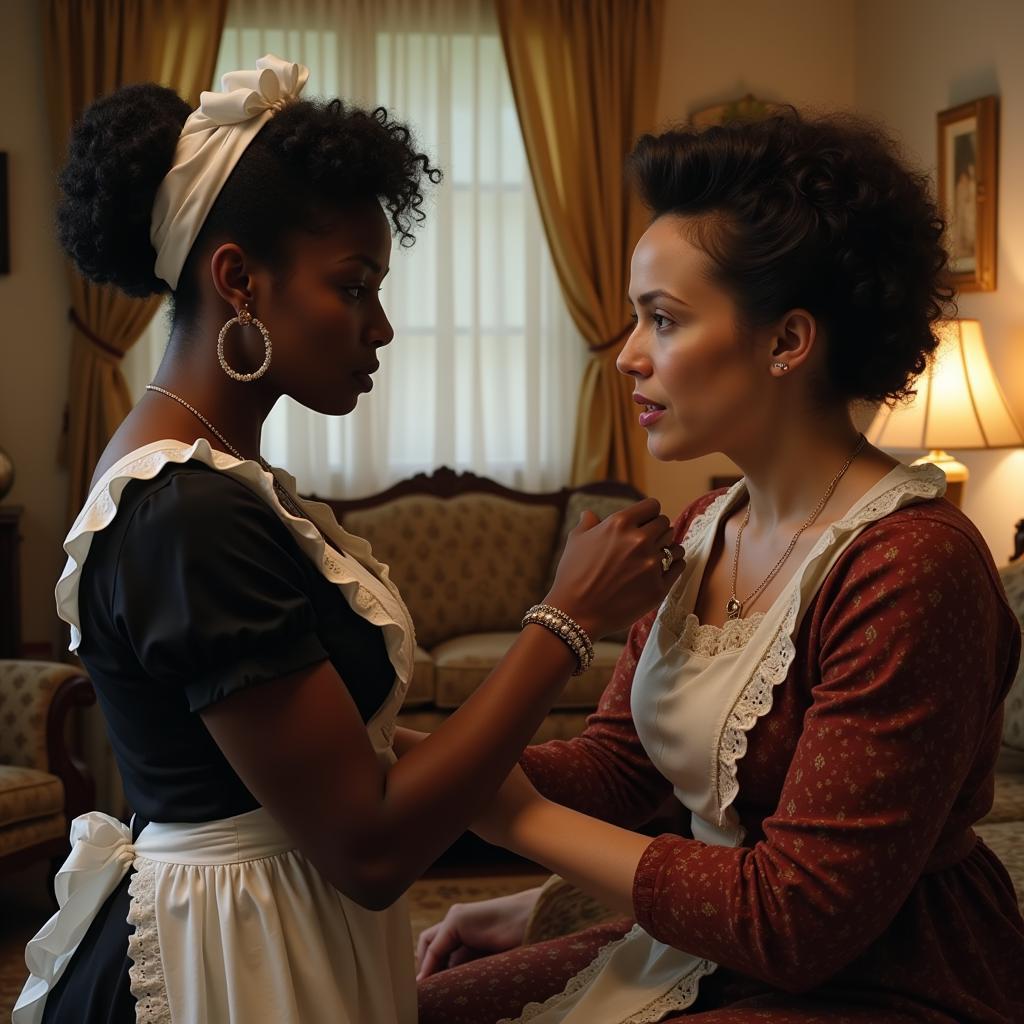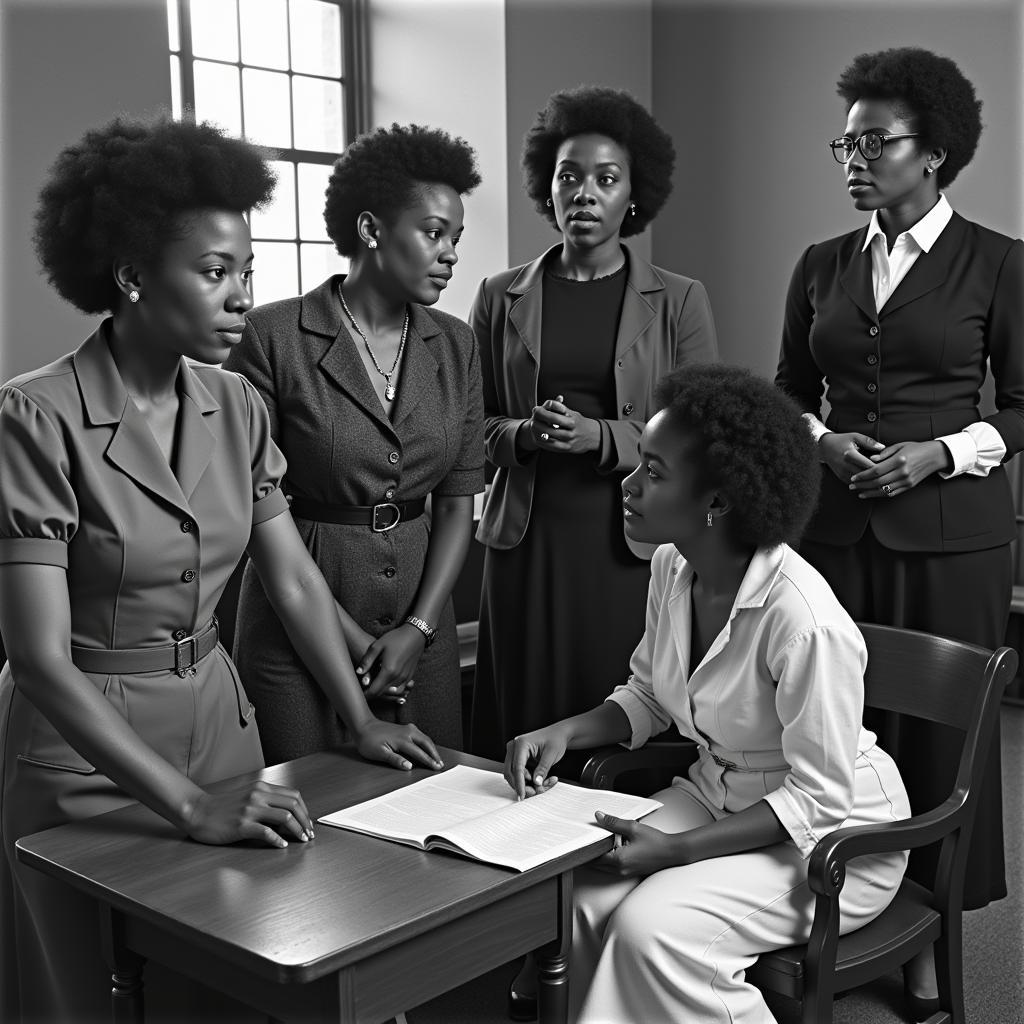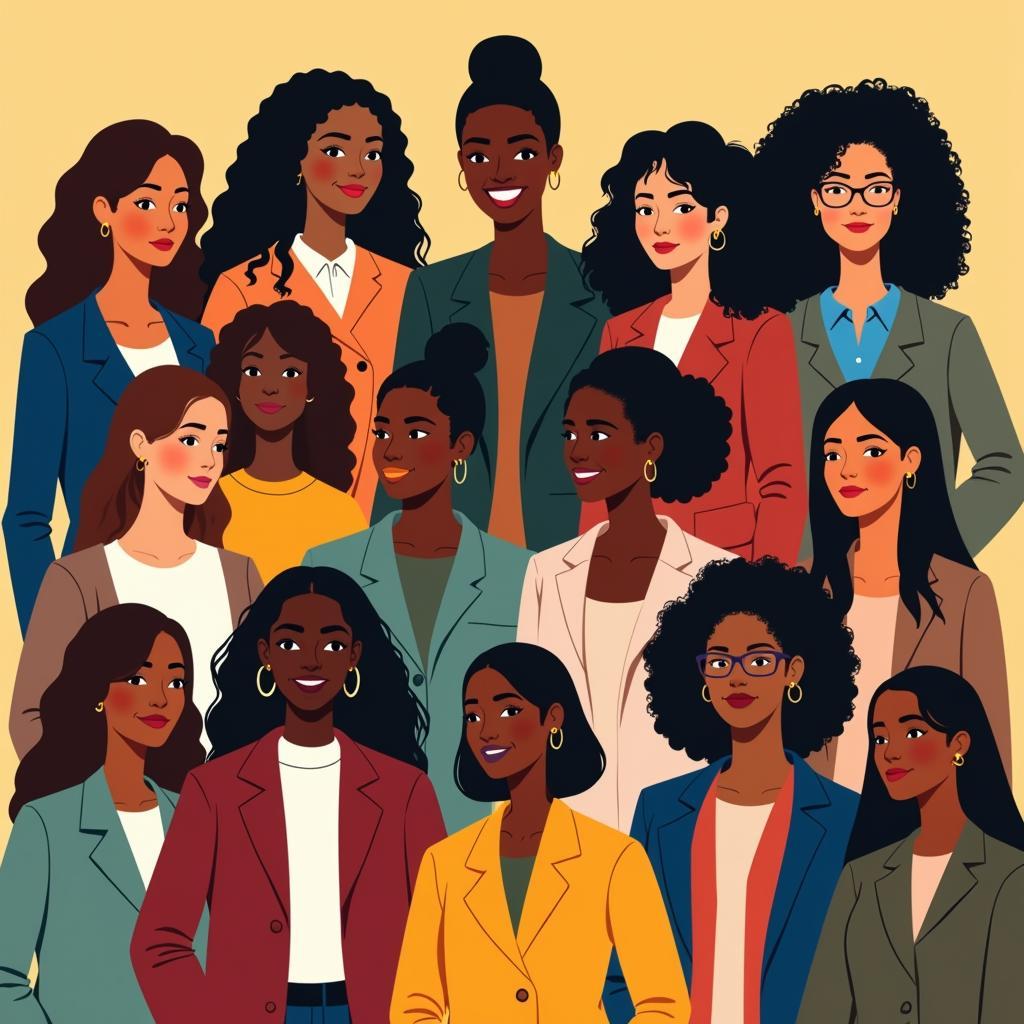African American Maids in the South: Untold Stories and Legacies
African American Maids In The South played a crucial role in shaping the social and economic landscape of the region, particularly during the Jim Crow era. Their experiences offer a poignant lens through which to understand the complexities of race, class, and gender in American history. These women, often unsung heroines, navigated a challenging world of racial prejudice and economic hardship with resilience, dignity, and often, quiet defiance. This article delves into their lives, exploring their contributions, struggles, and the enduring legacy they left behind.
The history of African American maids in the South is deeply intertwined with the legacy of slavery and its aftermath. After emancipation, many formerly enslaved women found themselves with limited options for employment, and domestic work became a prevalent occupation. This work, though often grueling and underpaid, provided a crucial source of income for families struggling to make ends meet. The dynamics of power and race were starkly evident in these relationships, with Black women often subjected to demeaning treatment and limited autonomy within the homes they served. However, these women also found ways to exercise agency and build community within these constrained circumstances. They shared stories, offered mutual support, and passed down traditions, creating a network of resilience in the face of adversity.
The Reality of Domestic Service in the Jim Crow South
The Jim Crow era codified racial segregation and discrimination, impacting every aspect of life for African Americans, including employment. Domestic work remained one of the few avenues open to Black women, further entrenching them in a system of economic dependence and social vulnerability. They faced constant scrutiny, were subjected to unfair labor practices, and often endured verbal and even physical abuse. Their wages were significantly lower than their white counterparts, and they lacked legal protections against exploitation.
Yet, within this system of oppression, African American maids found ways to resist and maintain their dignity. They formed informal networks of support, sharing information about employers, negotiating better wages, and offering emotional and practical assistance to one another. They also found subtle ways to challenge the authority of their employers, pushing back against unfair treatment and asserting their humanity.
Navigating Complex Relationships: Maids and Their Employers
The relationship between African American maids and their white employers was fraught with complexities. On the one hand, these women were often viewed as integral members of the household, providing essential care for children and managing the domestic sphere. They developed close bonds with the children they raised and sometimes formed genuine friendships with their employers. On the other hand, these relationships were always defined by the underlying power dynamics of race and class. Maids were expected to be subservient and were often treated with a lack of respect, highlighting the inherent inequalities of the system.
 Maid-Employer Relationship in Jim Crow South: An image illustrating the complex and often fraught relationship between African American maids and their white employers.
Maid-Employer Relationship in Jim Crow South: An image illustrating the complex and often fraught relationship between African American maids and their white employers.
These complex dynamics are often explored in literature and film, offering nuanced portrayals of the lives and experiences of African American maids in the South. Such narratives help shed light on the emotional labor these women performed and the challenges they faced in navigating the delicate balance between their professional and personal lives.
You might be interested in learning about African American jobs in the 1950s.
The Legacy of African American Maids: Shaping Social Change
The contributions of African American maids in the South extended far beyond the domestic sphere. They played a crucial role in the Civil Rights Movement, often working behind the scenes to organize protests, support activists, and challenge the status quo. Their experiences within white households provided them with valuable insights into the workings of power and privilege, which they used to advocate for social change.
 African American Maids and the Civil Rights Legacy: A representation of the unsung heroes of the Civil Rights Movement, highlighting the contributions of African American maids.
African American Maids and the Civil Rights Legacy: A representation of the unsung heroes of the Civil Rights Movement, highlighting the contributions of African American maids.
Their stories of resilience and resistance continue to inspire generations, reminding us of the strength and determination of these women in the face of overwhelming adversity. They left an indelible mark on American history, shaping the social and political landscape of the nation. We must continue to learn about and share these narratives of resilience and triumph to fully understand the rich tapestry of the American experience. For further exploration of African American contributions to entertainment, see the 1st African American to win an Oscar or explore African American comedy movies 2011.
Conclusion
African American maids in the South played a pivotal role in shaping the social, economic, and political landscape of the region. Their stories of perseverance, resilience, and quiet resistance offer a powerful testament to the human spirit. By understanding their experiences, we gain a deeper appreciation for the complexities of American history and the ongoing struggle for equality.
FAQ
- What were the typical working conditions for African American maids in the South?
- How did the Jim Crow era impact the lives of African American domestic workers?
- What role did African American maids play in the Civil Rights Movement?
- How were African American maids portrayed in literature and film?
- What are some resources for learning more about the history of African American maids in the South?
- What were some of the strategies African American maids used to resist oppression?
- How did the legacy of slavery impact domestic work in the South?
Common Scenarios and Questions
- What were the challenges faced by African American maids in finding and keeping employment?
- How did they manage the demands of domestic work alongside their family responsibilities?
- What were the social and emotional impacts of working in white households?
Further Exploration
Explore other related articles on our website to learn more about the history and culture of African Americans.
Call to Action
For further assistance, contact us at +255768904061 or [email protected]. You can also visit our office at Mbarali DC Mawindi, Kangaga, Tanzania. We have a 24/7 customer service team available.



